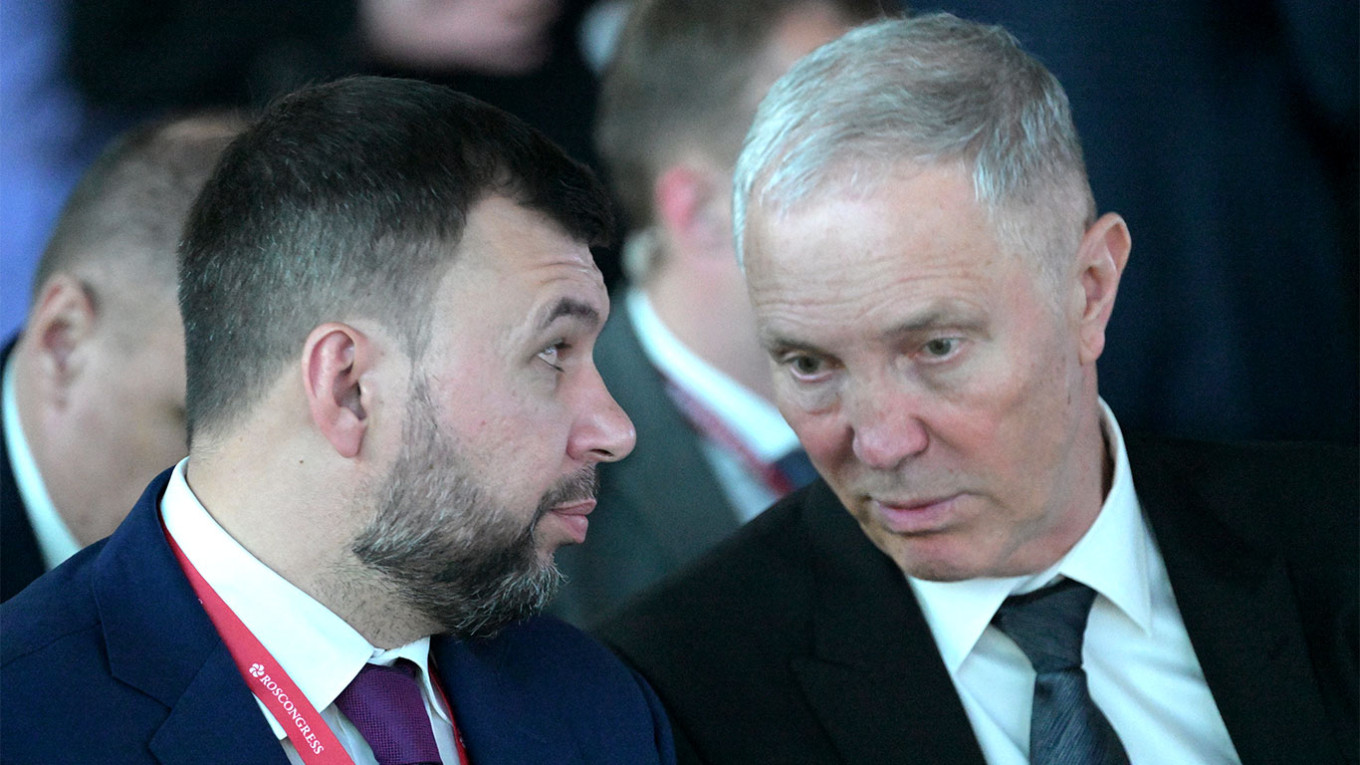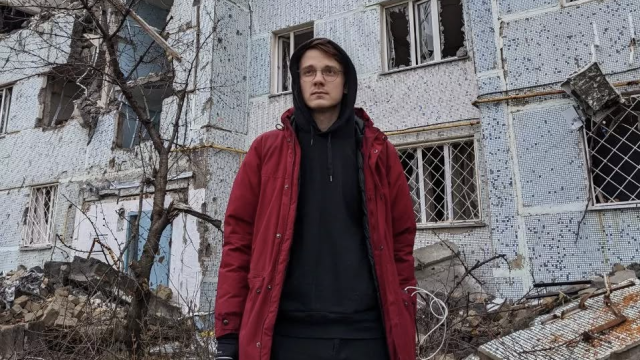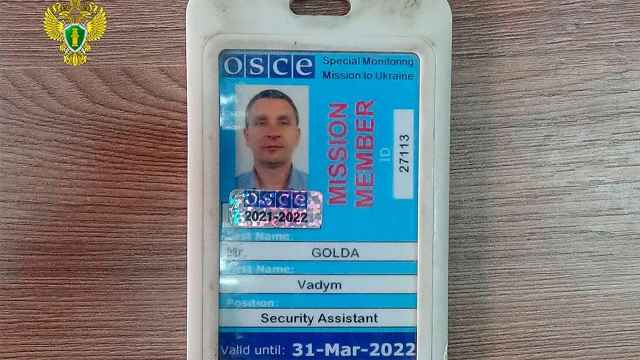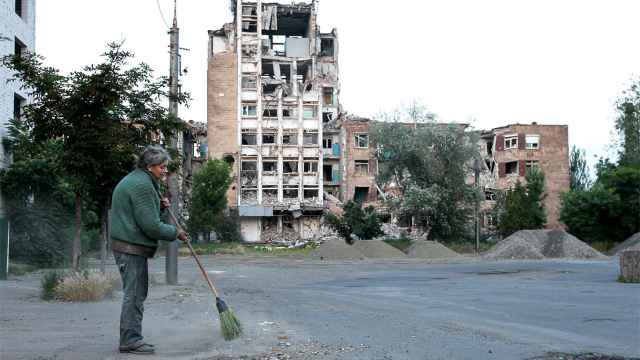Ever since the annexation of Crimea in 2014, Russia has been integrating representatives of local Ukrainian elites into its power structures. Most of these men and women have long looked to Moscow: they are mainly high-profile members of pro-Russian parties, influence peddlers, or the business partners of Russian tycoons. There are also some who rose unexpectedly to the top as a result of events on the ground.
There is no way back for these people. In Ukraine, they are traitors; in the West, they are on every sanctions list. Their only option is to find a place in Russian politics.
The problem is that Russia’s hierarchical political system and its long-standing political clans are reluctant to admit newcomers. Despite all the public pronouncements about how Russians and Ukrainians are “one people,” Russian officials do not actually see those from annexed Ukrainian regions as their own. Instead, these new Russian subjects are forced to form their own clans to help them lobby their interests at the federal level.
The most successful at doing this are the elites from Crimea, while the once-legendary clan from eastern Ukraine’s Donbas region appears weak. The most difficult task is faced by elites in the annexed Ukrainian regions of Kherson and Zaporizhzhia, whose territory could disappear as a result of the Ukrainian counteroffensive.
All these groups are united by the fact that their fates are entirely dependent on the success or failure of the Russian army. If the Kremlin is defeated in Ukraine, they will all meet an inglorious end. This makes them foreign policy hawks and cheerleaders for a military victory at all costs.
It’s hard for them to find allies within the Russian regime, since moderate technocrats see them as purveyors of an extreme form of aggressive Putinism, while ultra-patriots consider them unreliable because of their history of betrayal. As a result, they are all personally loyal to Russian President Vladimir Putin.
Again, it is the Crimean elites who illustrate these trends most clearly. After annexation, the peninsula’s elite was incorporated into the Russian ruling class and gained representation in both houses of the Russian parliament.
The symbol of this group is regional head Sergei Aksyonov, who has been in his post since 2014 and has survived repeated rumors about his imminent dismissal. He clearly enjoys Putin’s favor. In return, Aksyonov demonstrates unwavering loyalty toward his patron: during the recent uprising by the Wagner mercenary group, for example, he was the first Russian governor to publicly throw his support behind the president.
Aksyonov emerged from Crimea’s motley criminal underworld of the 1990s and has always been firmly pro-Moscow. He was elected to the Crimean parliament in 2010 as the leader of the Russian Unity party, thanks to financial backing from the Ukrainian oligarch Dmytro Firtash.
Another veteran player in Crimean politics is regional parliamentary speaker Vladimir Konstantinov. He represents the second pillar of the peninsula’s political elite: the former Party of Regions, the pro-Russia political party that was closely associated with former Ukrainian president Viktor Yanukovych, who was ousted in 2014. Konstantinov was elected to the regional parliament in 2010 and has been there ever since.
The political landscape is a little more complicated in the Crimean port city of Sevastopol, where “people’s mayor” Alexei Chaly — one of the officials to sign off on the annexation in 2014 — turned out to be too much of a demagogue. He was quickly replaced as governor of Sevastopol by a Russian bureaucrat, Sergei Menyailo, and left politics. The Sevastopol governor since 2020 has been Mikhail Razvozhayev, a typical Russian official who retains his post despite corruption scandals.
The groups around these influential men are largely populated by figures from the Yanukovych regime who fled to Crimea after the Maidan revolution. Some received positions through their business connections: former Ukrainian defense minister Pavlo Lebedev, for example, is now the vice president of the Russian Union of Industrialists and Entrepreneurs. Others have effectively been demoted during their move from Ukrainian to Russian politics, such as the former deputy Vadym Kolesnichenko, a colorful pro-Russian politician who is now an advisor to the Sevastopol governor and a TV presenter.
Of the twenty-four ministers in the Crimean government, only seven have been sent from Russia. The rest mostly held second-tier jobs in the local administration prior to the annexation. The abundance of former Ukrainian politicians who saw the Maidan revolution as a personal tragedy means the Crimean elite are fierce supporters of Russia’s cause in the current war.
The position of the Donbas elite is very different. Despite the fake statehood of the self-proclaimed Donetsk and Luhansk “people’s republics” (DNR and LNR), which came into being after a Russian-sponsored uprising in 2014, local elites were kept at a distance by Moscow. Most communication was via adventurists who managed to secure themselves mandates as the Kremlin’s “Donbas curators.”
Seeking maximum control, the Kremlin elevated marginal political figures in the Donbas rather than functionaries of the former Party of Regions. Since 2014, Russian crisis managers have appeared with increasing frequency, and the start of the full-scale invasion only accelerated this process.
Indeed, Donbas has become something of a career trampoline for Russian officials. Much was written, for example, about the appointment of Vitaly Khotsenko, who is close to Kremlin deputy chief of staff Sergei Kiriyenko, as DNR prime minister in 2022. After Khotsenko was moved to a Russian governorship, he was replaced by another Russian official: Yevgeny Solntsev, a former senior manager at the state-owned Russian Railways.
Of the 24 ministers in the DNR government, there are ten Russians, most of whom occupy key positions determining social and economic policy. The security agencies, on the other hand, remain dominated by local figures who defected from Ukraine after likely working for many years as Russian assets.
It’s a similar situation over in the LNR, where the government is led by separatist veteran Sergei Kozlov. Kozlov worked in Ukraine’s Emergency Situations Ministry before fighting against Ukrainian forces alongside former LNR head Igor Plotnitsky. Kozlov retained his position despite Plotnitsky being replaced by Leonid Pasechnik (a former Ukrainian secret service officer) in 2017.
Pro-Kremlin conformism has long been the best way for local elites to survive. In both Donetsk and Luhansk, there are no illusions that any misstep could prompt the Kremlin to carry out a full-scale rotation of local elites that would end the Donbas’s special status. So they try to keep their heads down — and are always keen to implement Putin’s wishes.
The toughest challenge for pro-Russian local elites is in the southern Ukrainian regions seized by the Russian army in 2022. This is a frontline zone where Ukrainian saboteurs are at work and assassination attempts against Russian-appointed officials are common. If the elites in Crimea and Donbas who went over to Moscow in 2014 could point to significant pro-Russian sentiment among the wider population, the pro-Kremlin officials in Kherson and Zaporizhzhia are entirely dependent on Russian bayonets — and war is a fickle thing.
Even so, as time passes, some local clans have begun to coalesce. The two centers of gravity are acting governors Yevgeny Balitsky in Zaporizhzhia and Vladimir Saldo in Kherson. Both are prominent figures in local politics with rich biographies: Saldo was mayor of Kherson for a decade, while Balitsky was a parliamentary deputy. Their entourages include former members of the Yanukovych regime.
Still, everything depends on the military situation. Local elites know full well that if their territories are retaken, they will be quickly — and permanently — forgotten by the Kremlin.
All told, the aspirations of former Ukrainian politicians working in Russian-occupied areas to be treated as equals by their Russian colleagues have not been realized, while the risks of their collaboration are growing every day. As a result, individual integration — when it’s everyone for themselves in the quest for a plum job in the Russian power vertical — seems to be the best option available. A good example of this is former DNR head Dmitry Trapeznikov, who rose to be the deputy governor of Russia’s Kalmykia region after leaving the Donbas in 2019.
Given the meager incentives on offer for the risky business of collaboration, it’s not surprising that Russia failed to convincingly split the Ukrainian elites in both 2014 and 2022. Both times, only a small minority went over to Russia’s side. Yet again, the Kremlin has been caught out by underestimating Ukraine’s agency and emancipation.
Ukrainian tycoons and politicians in the country’s southeast looked to Putin as a guarantor of post-Soviet corruption for many years, but they never wanted to see him become a conquering invader. To add insult to injury, Russia has not treated its supporters particularly well. Those Ukrainians who have thrown their lot in with Moscow now find themselves in the same boat as an aging authoritarian regime. They have few alternatives other than to show unquestioning support for Putin.
This article was originally published by The Carnegie Endowment for International Peace.
A Message from The Moscow Times:
Dear readers,
We are facing unprecedented challenges. Russia's Prosecutor General's Office has designated The Moscow Times as an "undesirable" organization, criminalizing our work and putting our staff at risk of prosecution. This follows our earlier unjust labeling as a "foreign agent."
These actions are direct attempts to silence independent journalism in Russia. The authorities claim our work "discredits the decisions of the Russian leadership." We see things differently: we strive to provide accurate, unbiased reporting on Russia.
We, the journalists of The Moscow Times, refuse to be silenced. But to continue our work, we need your help.
Your support, no matter how small, makes a world of difference. If you can, please support us monthly starting from just $2. It's quick to set up, and every contribution makes a significant impact.
By supporting The Moscow Times, you're defending open, independent journalism in the face of repression. Thank you for standing with us.
Remind me later.








